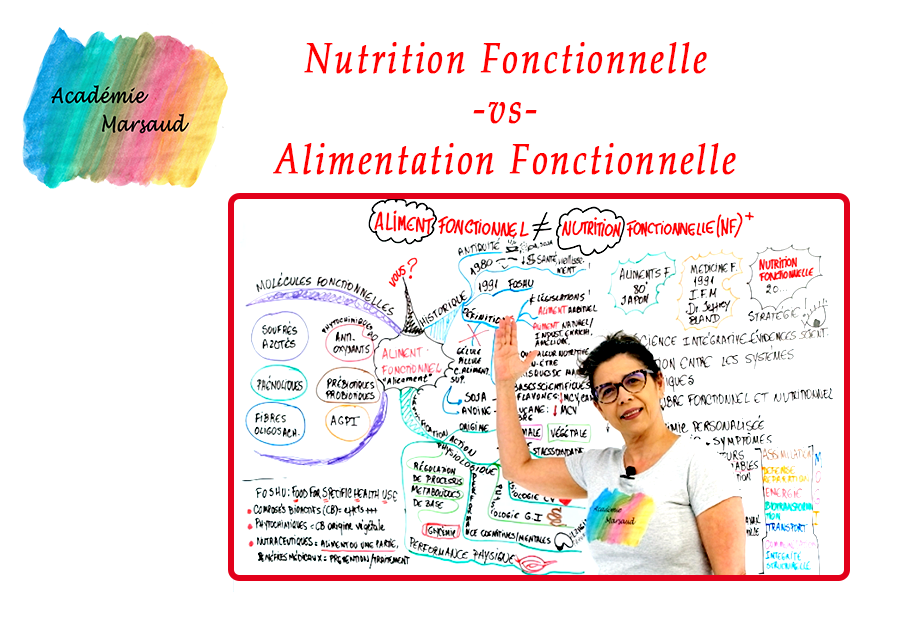There functional nutrition emerges as an innovative and complementary approach to preventive medicine, aimed at optimizing the overall health of the individual. By relying on nutritional assessments, it makes it possible to detect deficiencies and excesses in micronutrients, while restoring a balance essential to the proper functioning of the body. This discipline focuses on the adaptation of metabolic capacities through a varied and targeted diet, thus integrating the clinical, physiological and biological dimensions of each patient. The practices of micronutrition and of functional medicine are part of a preventive care framework, reinforcing the idea that health is not limited to the absence of disease, but involves holistic and proactive management of the state of health.
|
IN BRIEF
|
There functional nutrition emerges as a significant addition to the preventive medicine, aimed at optimizing health through nutritional balance and preventing imbalances. Using micronutritional assessments, this approach adjusts eating habits to meet individual needs. It helps restore physiological balance and can reduce the risk of chronic diseases.
What is functional nutrition?
There functional nutrition is a holistic approach that takes into account the specific nutritional needs of each individual. Unlike conventional medicine which applies standardized solutions, functional nutrition focuses on personal imbalances, both at the metabolic and physiological levels. This method aims to restore balance by diversified diet and adapted, thus making it possible to respond to the biological particularities of each person.
Assessment of deficiencies and excesses
One of the fundamental elements of functional nutrition is carrying out a nutritional assessment. This assessment makes it possible to identify the micro-nutritional deficiencies as well as excesses. By carrying out this assessment, it becomes possible to design a specific nutritional plan which aims to restore balance within the organization. This involves a detailed analysis of food intake and its adequacy in relation to individual physiological needs.
Micronutrition in support of functional medicine
There micronutrition represents an important aspect of functional medicine. It focuses on the optimal intake of micronutrients, such as vitamins and minerals, which are essential for the proper functioning of the body. Particular attention is paid to their preventive role in the fight against various pathologies, thus making it possible to improve the health prevention by adapting food choices.
Integration with preventive medicine
There preventive medicine traditionally aims to prevent the onset of diseases through early interventions. The integration of functional nutrition into this approach reinforces the effectiveness of preventive practices. By targeting nutritional imbalances, it helps maintain optimal health and reduce the risk of long-term disease. This approach is noble and scientific, integrating innovative tools and methodologies.
Training and professional development
functional nutrition. Courses like the one offered by NutriHealth Academy offer in-depth training on these topics. Practitioners can thus optimize their approach and include nutritional solutions in their interventions for more complete and effective monitoring.
Functional nutrition is positioned as a complement of choice to preventive medicine, allowing each individual to better manage their health through a personalized and proactive approach. It promotes a integrative medicine which takes into account both the nutritional needs and the biological specificities of each person.

Introduction to functional nutrition
There functional nutrition constitutes an innovative approach in preventive medicine. It plays a crucial role in the evaluation and optimization of nutritional needs individual. Based on the principles of functional medicine, this discipline helps prevent diseases and improve overall health by taking into account not only deficiencies, but also excesses. This text offers recommendations for effectively integrating functional nutrition into a preventive approach.
Assessment of nutritional needs
To begin, it is essential to carry out a complete nutritional assessment. This approach aims to identify the micronutrient deficiencies, as well as potential excesses that could harm your health. A qualified healthcare professional can assess various parameters, including intake of vitamins, minerals and other essential nutrients, in order to restore balance to the body. Analysis of eating habits, medical history and symptoms can offer valuable clues to adapt the diet to each individual.
The benefits of micronutrition
There micronutrition, as a component of functional nutrition, plays a key role in disease prevention. By ensuring an adequate intake of micronutrients, we stimulate immune functions, improve cardiovascular health and optimize metabolism. Include foods rich in antioxidants, in essential fatty acids, and in fibers in your daily diet can help reduce inflammation and regulate body weight, thus promoting better health overall.
A diversified and balanced diet
To meet the specific needs of each person, it is crucial to adopt a diet diversified and balanced. This involves eating a variety of foods covering all nutritional categories. Fruits, vegetables, whole grains, quality proteins and healthy fats should appear on the menu regularly. Meal planning and portion awareness allow you to better control your intake, while ensuring you are not neglecting important food groups.
Consider individual factors
There functional nutrition does not consider individuals as a homogeneous whole. Each person has unique needs depending on their age, gender, lifestyle and general health. Therefore, it is imperative to adjust nutritional recommendations according to each particular case. For example, individuals with thyroid problems may need special attention to their intake of certain essential nutrients.
Integrate functional nutrition into a preventive health program
To maximize the benefits of functional nutrition, it is recommended to integrate it into a broader framework of preventive health. This may include regular consultations with specialists in nutrition and in functional medicine, as well as periodic health check-ups. Ongoing nutrition education, focusing on the importance of food choices, is also essential to promote healthy and sustainable behaviors among the population.

There functional nutrition represents an innovative and complementary approach to preventive medicine, focused on identifying and correcting nutritional imbalances within the body. By assessing the specific needs of each individual in terms of micronutrients, this discipline allows personalized care, promoting the maintenance of optimal health. The nutritional assessment, a key element of this approach, is essential to detect deficiencies And excess, and thus restore the physiological balance necessary for the proper functioning of the body.
There functional medicine stands out for its holistic vision of health. Unlike conventional medicine which can treat symptoms in isolation, it considers the individual as a whole. This framework makes it possible to treat not only present disorders, but also to anticipate future health problems by adapting nutritional recommendations. The synergy between micronutrition And preventive medicine is therefore essential in restoring a balanced state of health.
By integrating elements of the Adaptive Functional Nutrition, healthcare professionals can offer an arsenal of non-drug strategies. These methods, based on changes in diet and targeted intake of micronutrients, are part of a preventive approach, aiming to avoid the appearance of chronic pathologies. It also paves the way for a model of care that promotes prevention, rather than late treatment of illnesses.
In short, the functional nutrition stands out as an essential component of a proactive health approach, offering promising prospects for prevention and improving the quality of life of individuals. The association of functional medicine with the principles of an adapted diet represents a step towards truly personalized and effective health care.










